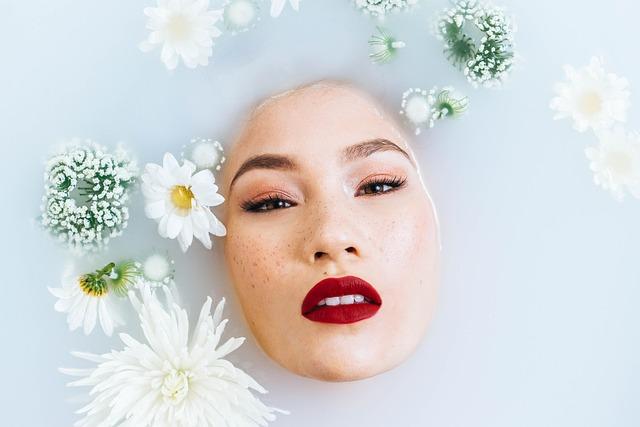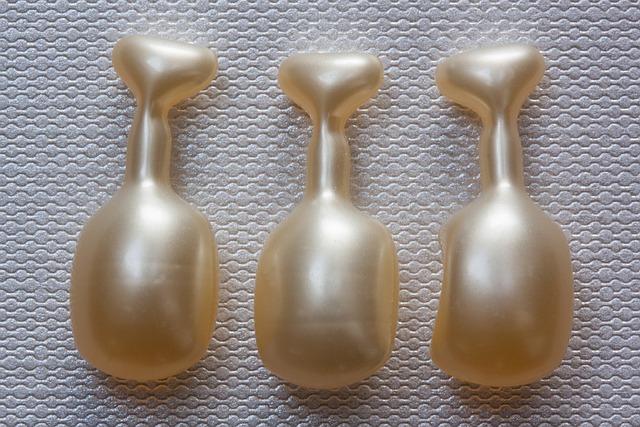In the relentless pursuit of youth, the beauty industry has become a sprawling empire, promising to turn back the hands of time with a dizzying array of creams, serums, and elixirs. Each product boasts miraculous claims, enticing consumers with visions of ageless skin and eternal vitality. But as the demand for anti-aging solutions surges, a crucial question emerges from beneath the glossy veneer of marketing: could these revered potions, hailed as fountains of youth, be harboring a darker side? In this exploration, we delve into the hidden complexities of anti-aging products, unraveling the science behind their allure and scrutinizing their potential to inflict more harm than good. Join us as we navigate the fine line between rejuvenation and risk, empowering you with the knowledge to make informed choices in your quest for timeless beauty.
Unveiling the Hidden Dangers of Anti-Aging Skincare

As the quest for eternal youth fuels the booming anti-aging skincare industry, it’s imperative to shine a light on the lesser-known perils lurking within these popular products. While the promises of smoother, younger-looking skin are tempting, certain ingredients might be causing more damage than you realize. Parabens, commonly used as preservatives, have been linked to hormonal disruptions, while retinoids, despite their efficacy, can lead to skin irritation and heightened sensitivity to sunlight.
- Parabens: May cause hormonal imbalances.
- Retinoids: Can increase skin sensitivity and irritation.
- Fragrances: Often lead to allergic reactions and skin irritation.
- Alcohol: Can strip the skin of its natural oils, leading to dryness.
It’s crucial to scrutinize product labels and understand what you’re applying to your skin. Opt for formulations with natural alternatives and always patch-test new products to safeguard your skin’s health. By being informed and cautious, you can navigate the beauty aisles with confidence, ensuring that your skincare routine is truly beneficial rather than detrimental.
Decoding Ingredients: What to Avoid for Healthier Skin

When diving into the world of anti-aging skincare, it’s crucial to understand the implications of certain ingredients on your skin’s health. While many products promise youthful radiance, some contain elements that might be doing more harm than good. Being informed about these ingredients can help you make better choices for your skincare routine.
- Parabens: Often used as preservatives, parabens can disrupt hormonal balance, potentially affecting your skin’s natural aging process.
- Sulfates: These harsh detergents can strip the skin of its natural oils, leading to dryness and irritation, which might accelerate the appearance of fine lines.
- Fragrance: Synthetic fragrances can cause skin allergies and sensitivity, making your skin more prone to inflammation and premature aging.
- Phthalates: Commonly found in many beauty products, phthalates have been linked to hormone disruption and can adversely affect skin health.
- Alcohol: While some forms are safe, others can dehydrate the skin, leading to a dull and aged appearance.
Incorporating products free from these potentially harmful ingredients can foster healthier, more resilient skin. Always read labels carefully and consider opting for natural or organic alternatives that prioritize skin wellness without compromising efficacy.
Expert Recommendations for Safe and Effective Anti-Aging Solutions

When it comes to achieving youthful skin, the market is flooded with countless products promising miraculous results. However, not all are created equal. Experts urge consumers to approach anti-aging solutions with caution, prioritizing ingredients and their proven benefits over marketing hype. Key recommendations include:
- Retinoids: These Vitamin A derivatives are celebrated for their ability to accelerate cell turnover and stimulate collagen production, but they should be used with care to avoid irritation.
- Antioxidants: Ingredients like Vitamin C and E are crucial in neutralizing free radicals, reducing oxidative stress, and brightening the skin.
- Peptides: Known for enhancing skin elasticity, peptides support the skin’s structure by promoting the production of proteins such as collagen and elastin.
- SPF Protection: Sunscreen is non-negotiable in any anti-aging regimen, shielding the skin from harmful UV rays that accelerate aging.
Experts also caution against products with harsh chemicals and fragrances, which can strip the skin of its natural oils and cause long-term damage. Opt for formulations that are dermatologist-tested and backed by clinical studies to ensure both safety and efficacy.


